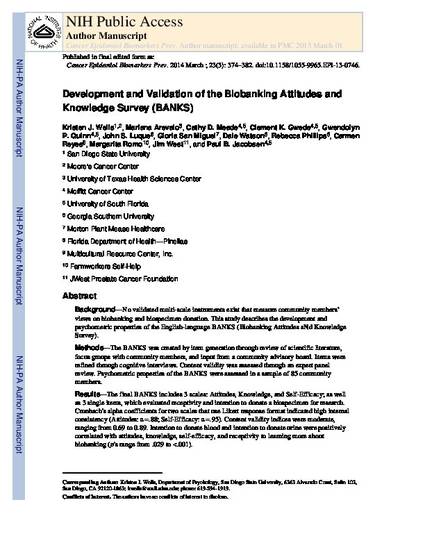
Background: Instrumentation with established reliability and validity is not yet routinely utilized to assess readiness for transition from pediatric to adult care for youth and young adults with chronic conditions, including sickle cell disease (SCD).
Objectives: The aim of this study was to develop a SCD specific readiness for transition assessment tool.
Subjects: Fifty-seven youths with SCD, ages 15–21 years, completed the initial version of the Transition Intervention Program – Readiness for Transition (TIP-RFT) assessment; 113 youths/young adults with SCD, ages 14–26 years, at two distinct sites of care completed a refined version of the TIP-RFT.
Methods: The TIP-RFT was constructed based on a literature review, provider and patient consensus and assessed domains including knowledge and skills in medical self-care, social support, health benefits and independent living and educational/vocational skills. We used principal components factor analysis to evaluate TIP-RFT responses and assessed differences in TIP-RFT scores in relation to age, gender, sickle cell diagnosis and site of care.
Results: The original TIP-RFT, which had demonstrated face validity, was reduced from 56 to 22 items. The revised instrument consisting of four subscales demonstrated good internal consistency reliability and construct validity.
Conclusions: Our results support that the TIP-RFT is a valid and reliable tool for the assessment of transition readiness for youths with SCD. The TIP-RFT assessment can guide interventions to improve transition readiness and can provide a foundation for future research on other variables that might be associated with transition readiness.
Available at: http://works.bepress.com/joseph_telfair/81/

This is an Accepted Author Manuscript obtained from PMC. The publisher's final edited version of this article is available at Cancer Epidemiology, Biomarkers, & Prevention.